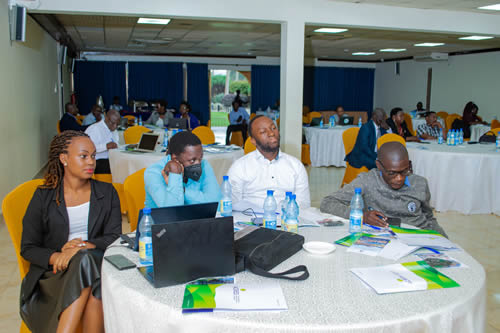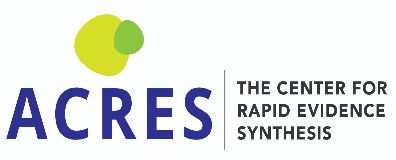
- June 29, 2024
- GIANT
- 0
Period: 2018 – 2022 (ACRES I & II)
Africa Center of Excellence for Rapid Evidence Synthesis (ACRES) I and II programme was implemented in two phases. Phase I lasted from 2018 to 2020, while phase II started in 2020 and concluded in 2022. During this programme, the Center for Rapid Evidence Synthesis was created, which transitioned into an autonomous entity by the end of the second phase to further the application and research of knowledge brokering in Uganda and the region.
Priorities for ACRES project
- Accelerating the provision of timely evidence to support policy decision-making processes for both health and other social sectors but with a major focus on the latter.
- Building the capacity of users of rapid evidence syntheses, along with that of their support systems/structures to be able to use evidence for policies and decision.
- Developing an index for measuring the impact of evidence on decisions in evidence-informed decision-making in rapid evidence synthesis.
- Building a stronger ACRES in terms of administrative and financial status.
Impacts of the Programme
- The Center for Rapid Evidence Synthesis (ACRES) organisation was created
- Collaboration with 19 new policymakers at the national and district levels (14 new in the health sector), including persons in the Ministry of Gender, Labour, and Social Development (MGLSD), the Office of the President (OP), Parliament of Uganda (PU), and civil society organization (CSO). The CSOs included the International Baby Foods Action Network (IBFAN) and the Youth Advocacy Network of Uganda (YADNET).
- ACRES developed a framework for the evaluation of the impact of rapid knowledge translation models. Using a multi-method approach that involved critical interpretive synthesis (CIS), the framework was completed, and a manuscript published.
- Although many of the planned capacity-building activities of the second phase were interrupted by the pandemic, a total of 89 users of evidence and researchers on different topical issues around evidence-informed decision-making and the rapid response service were trained. Trainees were mostly from Uganda, Kenya, and Malawi.
- ACRES also worked to strengthen governance structures to ensure evidence-informed decision-making, for example, with other partners including the UNDP. ACRES drafted a curriculum on evidence-informed decision-making to support build decision-makers’ capacity in all Uganda districts.
- Focus was also put on activities towards a stronger organization. We embarked on attaining an autonomous status from Makerere University, attract more funding and build the capacity of the team.
